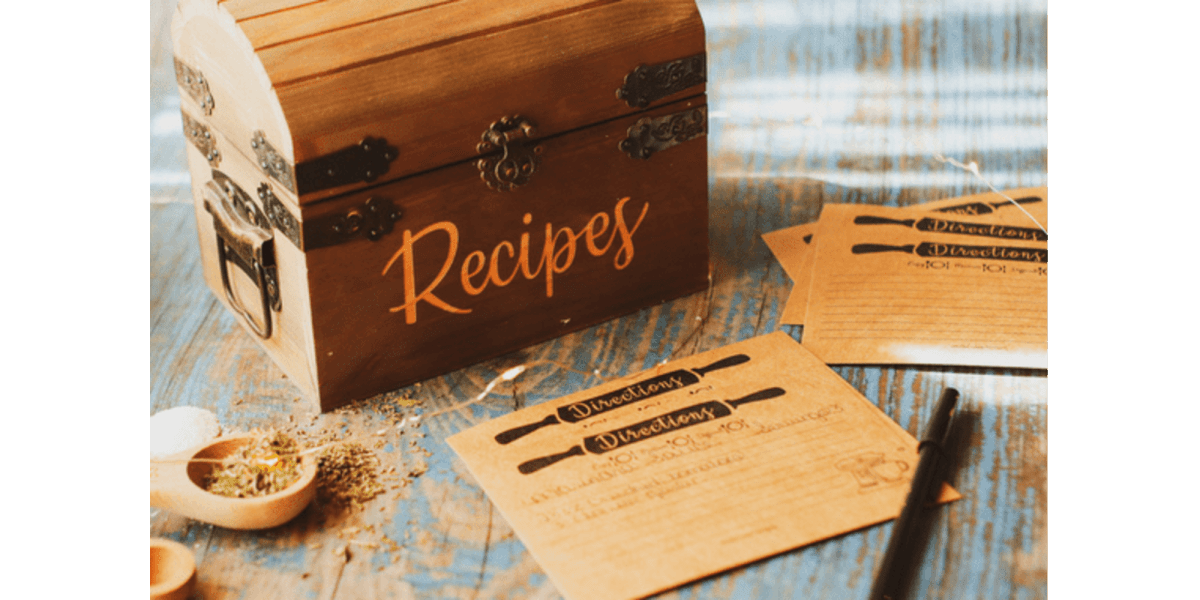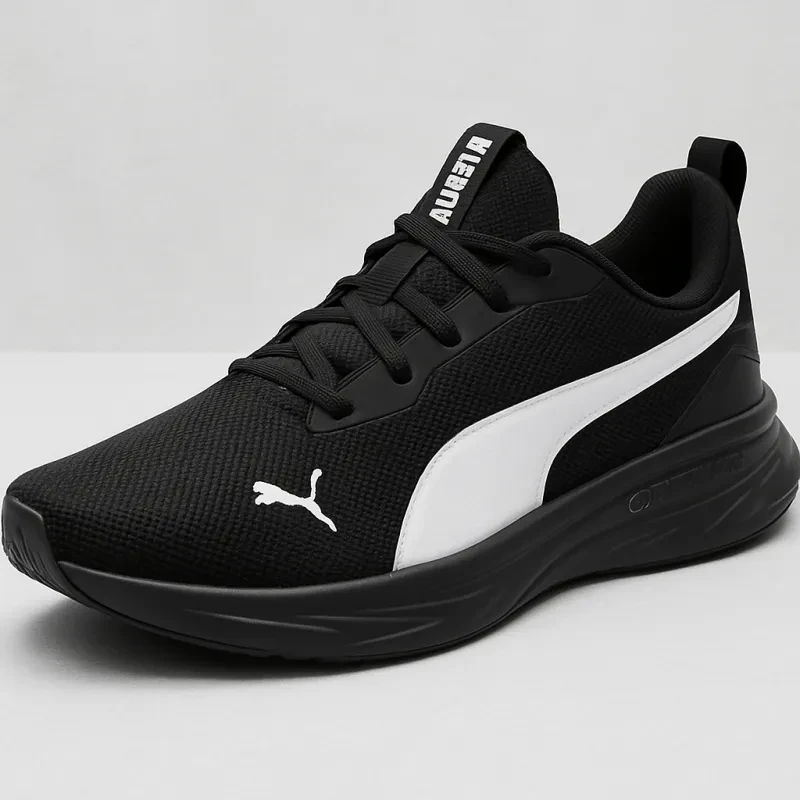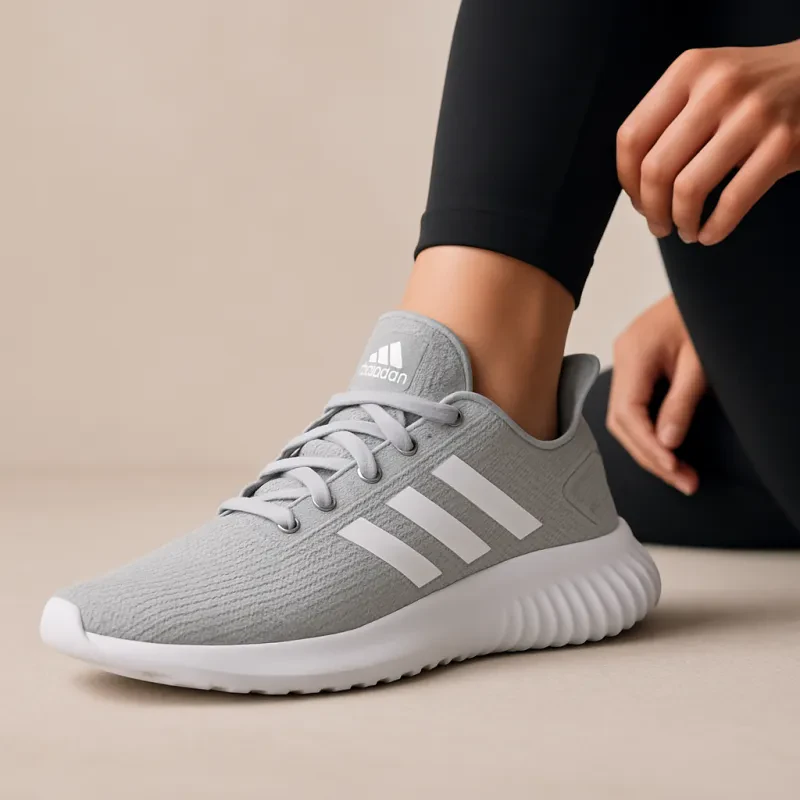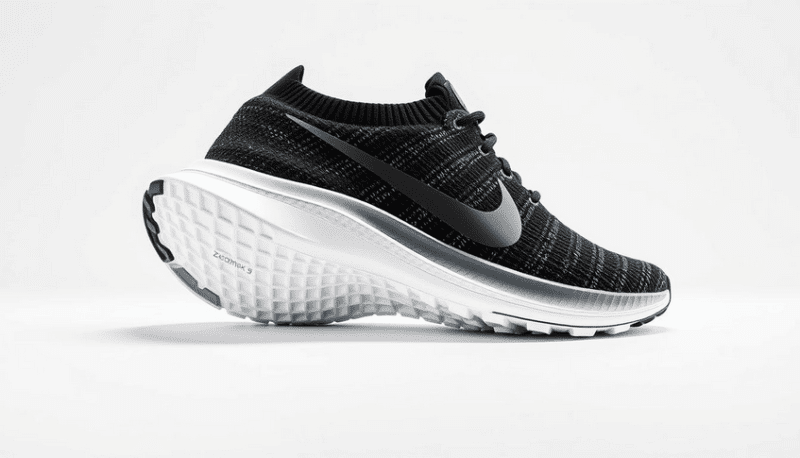Running doesn't have to break the bank. With smart planning and affordable ingredients, you can fuel your passion without emptying your wallet. We've put together eight budget-friendly recipes that pack the nutrients runners need to stay energized and recover well.

These easy-to-make meals are designed to give you the right balance of carbs, protein, and healthy fats without costing a fortune. From quick post-run snacks to hearty dinners, our recipes use common, low-cost ingredients you can find at any grocery store.
Eating well as a runner doesn't mean spending a lot. By focusing on whole foods and simple preparations, you can save money and still get the nutrition your body needs. Let's dive into these tasty, wallet-friendly options that will keep you running strong.
Key Takeaways
- Budget-friendly recipes can provide runners with balanced nutrition
- Meal prep and smart grocery shopping help cut costs
- Simple, whole-food ingredients offer the best value for runners
Understanding Nutrition for Runners

Good nutrition is key for runners. It gives us energy, helps us recover, and keeps us healthy. Let's look at what runners need to eat and drink.
The Role of Macronutrients
Carbohydrates are a runner's best friend. They give us quick energy for our runs. We should aim for 45-65% of our calories from carbs. Good sources are whole grains, fruits, and veggies.
Protein helps repair and build muscle. We need about 1.2-1.6 grams per kilogram of body weight daily. Lean meats, fish, eggs, and beans are great protein sources.
Healthy fats are important too. They help us absorb vitamins and keep our joints healthy. We should get 20-35% of our calories from fats. Nuts, avocados, and olive oil are good choices.
Fiber keeps our digestive system happy. It's found in fruits, veggies, and whole grains.
Proper Hydration and Electrolytes
Water is crucial for runners. We lose a lot through sweat. We should drink before, during, and after runs. A good rule is to drink when thirsty.
Electrolytes help balance fluids in our body. We lose them when we sweat. Sports drinks can replace electrolytes during long runs.
For short runs, water is usually enough. For runs over an hour, we might need sports drinks or electrolyte tablets.
Remember, everyone's needs are different. It's best to try different things and see what works for us.
Developing a Budget-Friendly Grocery List

Creating a smart grocery list is key for runners looking to eat well without breaking the bank. We'll explore how to focus on nutrient-rich foods and save money by buying in bulk.
Prioritizing Nutrient-Dense Foods
Runners need foods that fuel their workouts and aid recovery. We suggest putting complex carbs, lean proteins, fruits, and veggies at the top of your list.
Brown rice, whole wheat pasta, and oats are great carb options. They're cheap and fill you up. For protein, chicken, eggs, and canned tuna are budget-friendly choices.
Don't skip fruits and veggies. Bananas, apples, carrots, and frozen mixed vegetables offer lots of nutrients at a low cost. Beans are also a winner - they're packed with protein and fiber.
Buying in Bulk
Buying larger amounts can save money in the long run. We recommend checking out the bulk bins for items like nuts, seeds, and grains.
Look for sales on non-perishables like pasta, rice, and canned goods. Stock up when prices are low. Frozen fruits and veggies are another smart bulk buy. They last long and are often cheaper than fresh.
For meat, buy family packs and freeze what you don't need right away. This can cut costs significantly. Remember, a little planning goes a long way in stretching your grocery budget.
Essential Meals for Energy and Recovery

Proper nutrition is key for runners. We'll explore affordable meal options that provide the fuel and nutrients needed to power your runs and help your body recover afterward.
Balanced Breakfast Options
Start your day with a nutrient-packed breakfast. Oatmeal with banana and peanut butter is a great choice. It's cheap and gives you carbs, protein, and healthy fats.
Another good option is whole grain toast with eggs and avocado. This meal provides lasting energy for morning runs.
Greek yogurt with berries and granola is also budget-friendly. It's high in protein and carbs to keep you full.
For a quick meal, try a smoothie with frozen fruit, spinach, and protein powder. It's easy to make and packed with nutrients.
Lunches for Sustained Energy
For lunch, focus on meals that will fuel your afternoon workouts. A turkey and cheese sandwich on whole wheat bread with an apple is simple but effective.
Tuna salad with whole grain crackers and carrot sticks is another cheap, protein-rich option.
A veggie-packed bean burrito provides fiber and protein to keep you satisfied. Add brown rice for extra carbs.
Leftovers from dinner can also make great lunches. Cook extra at night to save time and money the next day.
Dinners for Muscle Repair
After a run, your body needs protein and carbs to recover. Chicken breast with sweet potato and broccoli is a classic, affordable meal for runners.
Stir-fry with tofu, mixed veggies, and brown rice is quick to make and full of nutrients. It's also easy to make in big batches.
Pasta with lean ground beef and tomato sauce is great for carb-loading before a race. Add a side salad for extra vitamins.
Salmon with quinoa and roasted vegetables provides omega-3 fats and protein. Look for sales on frozen fish to keep costs down.
Strategizing Meal Prep for the Week

Meal prep saves time and money for busy runners. We'll explore simple techniques and smart planning to make your weekly meal prep easy and budget-friendly.
Simple Meal Prepping Techniques
Start by cooking big batches of staples like brown rice, quinoa, or beans. These form the base of many meals and keep well in the fridge. Chop veggies in advance and store them in containers. This cuts down on daily prep time.
Roast a whole chicken or cook a large pot of chili. These can be used in different meals throughout the week. Use your slow cooker or instant pot for hands-off cooking while you're out running.
Invest in good storage containers. Glass containers keep food fresh longer and are easy to reheat. Label everything with dates to track freshness.
Efficient Meal Planning Strategies
Plan your meals around sales at the grocery store. Check weekly ads and build your menu based on what's on offer. Buy seasonal produce for the best prices and flavor.
Make a detailed shopping list to avoid impulse buys. Stick to it when you're at the store. Buy in bulk for items you use often, but only if you'll use them before they go bad.
Cook once, eat twice. Plan dinners that can become next day's lunch. For example, grilled chicken can be used in salads or sandwiches. This saves time and reduces food waste.
Use a meal planning app or simple spreadsheet to organize your weekly menu. This helps track your budget and ensures variety in your meals.
Affordable Snack Ideas for Runners

Fueling our runs doesn't have to break the bank. We can make tasty, nutritious snacks at home using simple ingredients. These options will keep us energized without emptying our wallets.
Homemade Energy Bars
Making our own energy bars is easy and cheap. We can mix oats, nut butter, honey, and dried fruit to create delicious bars. Adding chocolate chips or coconut flakes gives extra flavor. These bars store well in the fridge for quick grab-and-go snacks.
For variety, we can swap ingredients based on what's on sale. Sunflower seeds or pumpkin seeds work great in place of nuts. Mashed banana can replace some of the honey to cut costs.
We can make a big batch on the weekend to last all week. Wrapping them individually makes them portable for long runs or races.
Portable Fruit and Nut Combinations
Trail mix is a runner's best friend. We can make our own by mixing unsalted nuts, dried fruit, and seeds. Buying ingredients in bulk saves money. Some tasty combos include:
- Almonds, raisins, and sunflower seeds
- Cashews, dried cranberries, and pumpkin seeds
- Peanuts, dried apple bits, and walnuts
Fresh fruit is another budget-friendly option. Apples and bananas travel well and give quick energy. Pairing them with a small handful of nuts adds protein and healthy fats.
For longer runs, we can pack grapes or berries in a small container. These fruits have high water content to help keep us hydrated.
Carbohydrate Loading on a Budget
Carb loading helps runners build up glycogen stores before a big race. We can do this affordably with simple, low-cost foods.
Pasta is a cheap carb-loading staple. A 1-pound box costs around $1 and provides plenty of complex carbohydrates. We can pair it with an inexpensive tomato sauce for flavor.
Rice is another budget-friendly option. A large bag lasts for many meals. Brown rice offers more nutrients than white rice.
Potatoes and sweet potatoes are nutritious, filling, and easy on the wallet. We can bake them in batches to eat throughout the week.
Here's a sample day of budget carb loading:
- Breakfast: Oatmeal with banana
- Lunch: Rice and beans
- Dinner: Pasta with tomato sauce
- Snacks: Baked potato, apple
Bread is also cost-effective for carb loading. We can make sandwiches or toast for quick, easy meals.
Bananas are one of the cheapest fruits and work great for pre-run fuel. A bunch typically costs less than $2.
By focusing on these affordable staples, we can effectively carb load without breaking the bank. The key is planning ahead and buying in bulk when possible.
Selecting Affordable Proteins
Runners need protein, but it doesn't have to break the bank. We'll look at some budget-friendly protein sources that pack a nutritional punch without emptying your wallet.
Plant-Based Proteins
Beans and lentils are cheap protein powerhouses. A can of beans costs under $1 and provides about 15 grams of protein per serving. We like to add them to salads, soups, and wraps.
Tofu is another wallet-friendly option. At around $2 per block, it offers 20 grams of protein per cup. It's great in stir-fries or scrambled like eggs.
Peanut butter is tasty and budget-friendly. Two tablespoons give you 8 grams of protein for about 20 cents. Spread it on whole grain toast or add it to smoothies.
Lean Meat Alternatives
Eggs are a runner's best friend. They're cheap and packed with protein. One egg has 6 grams of protein and costs about 20 cents. We love them hard-boiled, scrambled, or in omelets.
Canned tuna is a pantry staple for budget-conscious runners. A can costs about $1 and offers 20 grams of protein. It's perfect for quick sandwiches or salads.
Greek yogurt is creamy and protein-rich. A single-serve container has about 15 grams of protein for under $1. We use it as a base for smoothies or top it with fruit and granola.
Incorporating Healthy Fats Without Overspending

Healthy fats are key for runners, but they don't have to break the bank. We've found some budget-friendly ways to add these important nutrients to our meals.
Nuts are a great source of healthy fats. We buy them in bulk and portion them out for snacks or to top our oatmeal. Almonds, walnuts, and peanuts are often the most affordable options.
Avocados can be pricey, but we watch for sales and freeze extras. Half an avocado goes a long way in adding creamy texture and healthy fats to smoothies or toast.
Canned fish like sardines and mackerel are cheap sources of omega-3s. We add them to salads or spread them on crackers for a quick, nutritious snack.
Cooking with olive oil adds healthy fats to our meals. We look for store-brand versions to save money without sacrificing quality.
Seeds like flax, chia, and pumpkin seeds are nutrient-dense and wallet-friendly. We sprinkle them on yogurt or add them to baked goods for an easy fat boost.
By focusing on these affordable options, we can get the healthy fats our bodies need without overspending. It just takes a bit of planning and smart shopping.
Limiting Processed Foods for Health and Savings

Cutting back on processed foods can boost our health and save money. We suggest focusing on whole, natural ingredients when planning meals for runners.
Processed foods often lack fiber and nutrients. They can be pricey too. Instead, we recommend choosing foods with just one ingredient, like oats or fresh fruits.
Swapping cereal for plain oatmeal is a smart move. Oats have more fiber and cost less than many packaged cereals. We can add fresh berries for natural sweetness.
Here are some easy ways to reduce processed foods:
• Cook meals from scratch • Choose whole grains over refined ones • Buy fresh produce instead of canned • Make homemade snacks like trail mix
Reading labels helps us spot hidden processed ingredients. We look for short ingredient lists with words we recognize.
Meal prep saves time and money. We can cook big batches of whole grains, beans, and veggies to use all week. This makes it easier to skip packaged meals.
Frozen fruits and veggies are budget-friendly whole foods. They're just as healthy as fresh and last longer. We use them in smoothies, stir-fries, and soups.
By limiting processed foods, we fuel our runs with quality nutrition. Our wallets benefit too. It's a win-win for our health and budget.
Budget-Friendly Recipes for Pre-Run and Post-Run

Eating well as a runner doesn't have to break the bank. We've got some tasty and cheap recipes to fuel your runs and help you recover.
Energizing Pre-Run Breakfasts
Overnight oats are a runner's best friend. Mix 1/2 cup oats with 1/2 cup milk and let it sit in the fridge overnight. In the morning, add a mashed banana and a spoonful of peanut butter. This gives you slow-burning carbs and protein to power your run.
Another quick option is a veggie and egg frittata. Beat 6 eggs with 1/4 cup milk. Pour into a greased baking dish. Add a cup of frozen veggies and bake at 350°F for 20 minutes. Cut into squares for an easy grab-and-go breakfast all week.
Recovery-Enhancing Post-Run Meals
After a run, we need to refuel with carbs and protein. A simple potato and egg bowl fits the bill. Microwave a potato, then top with a fried egg and some salsa. It's cheap, fast, and packed with nutrients.
For a cold option, try a tuna pasta salad. Mix cooked pasta with canned tuna, frozen peas, and a little mayo. This meal prep favorite can be made in big batches. It gives us the carbs to refill energy stores and protein to repair muscles.
Running Events and Nutrition

When preparing for a half marathon or other running events, proper nutrition is key. We need to fuel our bodies with the right mix of nutrients to perform our best on race day.
Carbohydrates are the main energy source for runners. We should aim to get 55-65% of our calories from carbs in the days leading up to an event. Good sources include whole grains, fruits, and starchy vegetables.
Protein is also important for muscle repair and recovery. Runners need about 1.2-1.6 grams of protein per kilogram of body weight daily. Lean meats, fish, eggs, and beans are excellent protein options.
Here's a sample pre-race meal plan:
- Breakfast: Oatmeal with banana and peanut butter
- Snack: Greek yogurt with berries
- Lunch: Whole grain pasta with chicken and vegetables
- Dinner: Baked salmon with sweet potato and broccoli
On race day, we should eat a light meal 2-3 hours before start time. A banana with toast or a small bowl of cereal works well.
During longer events like half marathons, we may need to refuel. Energy gels or sports drinks can provide quick carbs to keep us going strong.
After crossing the finish line, we shouldn't forget to replenish. A mix of carbs and protein within 30 minutes helps jumpstart recovery. Chocolate milk or a turkey sandwich are great post-race choices.
Frequently Asked Questions
Runners can eat well on a budget with some smart strategies. These questions cover affordable meal options, nutrition tips, and recipes to fuel your training without breaking the bank.
What are some cost-effective meal options for runners?
Oatmeal with peanut butter and banana is a cheap, filling breakfast. Rice and beans with veggies make an easy, budget-friendly dinner. Eggs are versatile and pack a lot of protein for the price. Frozen fruits and vegetables are just as nutritious as fresh but cost less.
How can runners optimize their nutrition without overspending?
Buy in bulk when items are on sale. Plan meals around seasonal produce. Use dried beans and lentils instead of canned. Make big batches and freeze leftovers. Shop at farmers markets near closing time for deals. Grow herbs at home to add flavor without cost.
What type of dinner is best for a post-run recovery?
A mix of carbs and protein is ideal. Try whole wheat pasta with chicken and veggies. Or sweet potato with black beans and salsa. Brown rice with tofu and broccoli works too. Add a side of fruit for extra nutrients and natural sugars.
Which recipes provide the best fuel for half marathon training on a budget?
Overnight oats with milk and fruit give long-lasting energy. Peanut butter and banana sandwiches are quick and cheap. Homemade energy bars with nuts and dried fruit beat store-bought versions. Lentil soup is filling and loaded with carbs and protein.
Are there affordable alternatives to popular Runner's World recipes?
Yes! Swap fancy ingredients for budget-friendly ones. Use regular potatoes instead of sweet potatoes. Choose canned tuna over salmon. Replace quinoa with brown rice. Mix in frozen veggies instead of fresh. The meals will still be nutritious and tasty.
What ingredients are essential for a budget-friendly runner's meal plan?
Oats, rice, and pasta are cheap carb sources. Eggs, canned beans, and lentils provide affordable protein. Bananas, apples, and frozen berries offer nutrients at low cost. Peanut butter is calorie-dense and filling. Carrots and potatoes are inexpensive, versatile veggies.
DISCLAIMER
This document is provided for general information purposes only and should not be relied upon as providing legal advice, technical, or specific operational guidance to the reader, whether as to the practices described in the document or the applicable legal requirements and regulations. snazzysneaks.com expressly disclaims any responsibility for liability arising from or related to the use or misuse of any information in this document.



